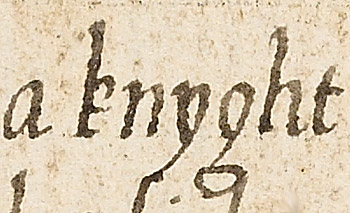Squire of Low Degree / Undo Your Door
General Information
Plot Summary

A squire loves the princess of Hungary, but keeps his feelings secret because of his low social status. He sits in the palace gardens below her chamber, lamenting his poverty and wishing that he was a great knight like the heroes of romance. One day she overhears him and opens her window; he confesses his love and offers to become a pilgrim if she refuses. She accepts him, but provides him with a list of chivalric tasks which he must accomplish to become worthy of her: feats of arms, long voyages, participation in the crusades and a pilgrimage to the Holy Sepulchre. She promises to provide him with funds and equipment and to wait for him for seven years. They kiss three times and he departs.
The King’s steward is concealed nearby and overhears their conversation. Being in love with the princess himself he decides to betray them to her father. The King, however, approves of the handsome squire. He agrees that the steward should guard the princess’ chamber, but forbids him to use force unless the squire attempts to enter it. The squire sets off on his adventures, but a short mile from the court decides to return to his lady’s chamber for a final farewell. Feigning that he is under attack, he demands entry. At first the princess refuses, not recognising him, but then explains at length that they must wait until he has proved himself, citing the example of Libeaus Desconus. As she talks, the steward attacks the squire, who kills him but is captured by his men. They dress the steward’s corpse in the squire’s clothes and disfigure its face, then take the squire to the King.
The princess opens her door and finds the body. Believing it to be the squire, she takes it into her chamber, embalms it, and places it in a marble chest near her bed. She goes into mourning, kissing the corpse every day and saying masses for her lover’s soul. Although he knows the reason for her distress, the King feigns ignorance. He offers his daughter lavish entertainments, including hunting, music, wine, beautiful clothes and games, but she refuses. Meanwhile, the King secretly releases the squire, instructing him to complete his journey and become worthy of his daughter. This he does and, after seven years, returns to the King, who welcomes him as a son.
The King conceals himself below the princess’ window and listens as she laments that the body, after seven years, is crumbling into dust and vows to become an anchoress. When she rejects his offer to marry her to a king, he reveals that the body is that of the steward, and relates the whole series of events. Distraught, she swoons, but the king reassures her that the squire is alive and will be his heir. The couple are reunited, and all the knights in Hungary are summoned to their wedding. The squire is made king, and he and the princess live happily for the rest of their lives.
From: Donald Sands, Middle English Verse Romances. Exeter, University of Exeter Press, 1986.
Early Print: The Squyr of Lowe Degre. London: William Copland, 1560? STC (2nd ed.), 23112.
Manuscripts
Click a title below to search for all romances in that manuscript.